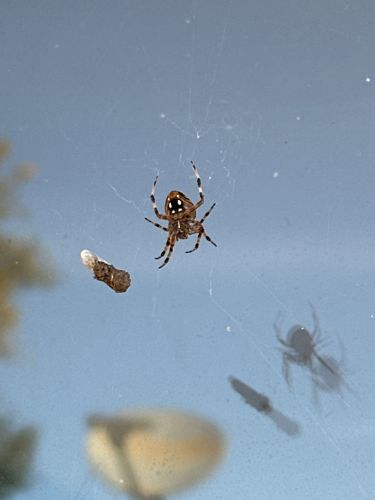Marbled Orb-weaver
Scientific Name: Araneus marmoreus
Order & Family: Araneae (Spiders), Araneidae (Orb-weavers)
Size: Females typically range from 9 to 15 mm, while males are smaller, usually 5 to 8 mm. This measurement refers to body length, excluding legs.

Natural Habitat
Woodlands, forests, gardens, hedgerows, and other areas with vegetation where they can construct their webs. They often build webs between trees, shrubs, or on structures.
Diet & Feeding
Mainly insects caught in its orb web, such as flies, moths, beetles, and other small flying insects.
Behavior Patterns
Marbled orb-weavers are known for constructing large, intricate orb webs, often positioned vertically to capture flying prey. The spider typically waits in the center of the web or in a retreat nearby, often a leaf rolled up with silk. They are most active at night or during twilight hours. Females are larger than males and are responsible for constructing the web and laying egg sacs.
Risks & Benefits
Marbled orb-weavers are not considered dangerous to humans; their venom is not medically significant, and bites are rare and usually only occur if the spider is directly handled or provoked. They are beneficial insects as they help control populations of various pest insects, contributing to a healthy ecosystem.
Identified on: 9/17/2025